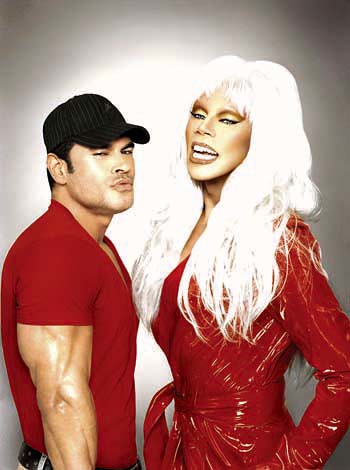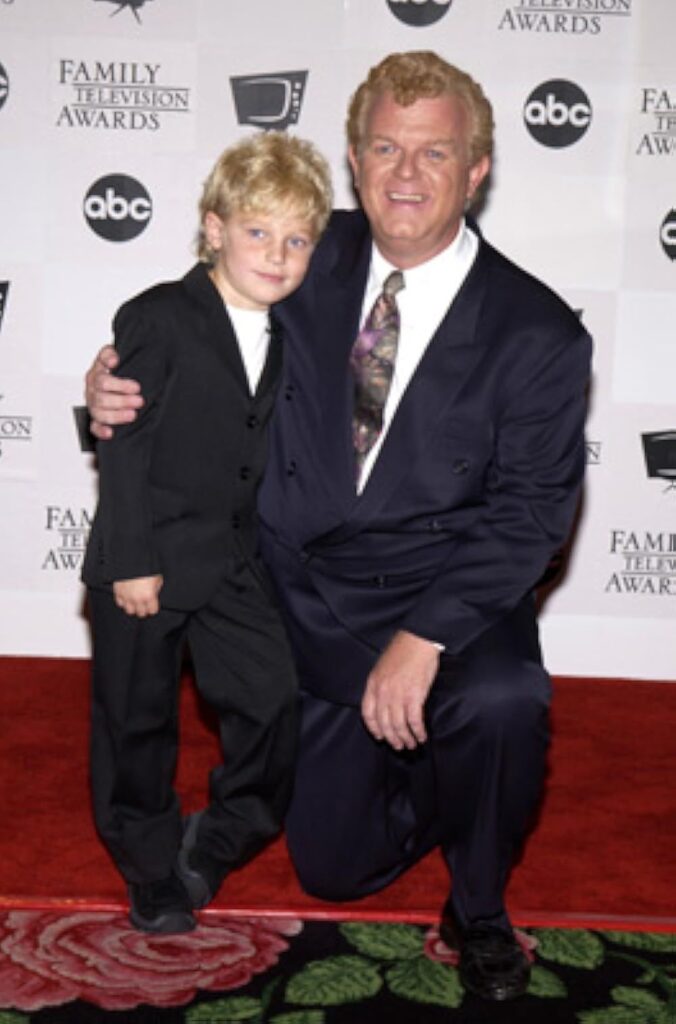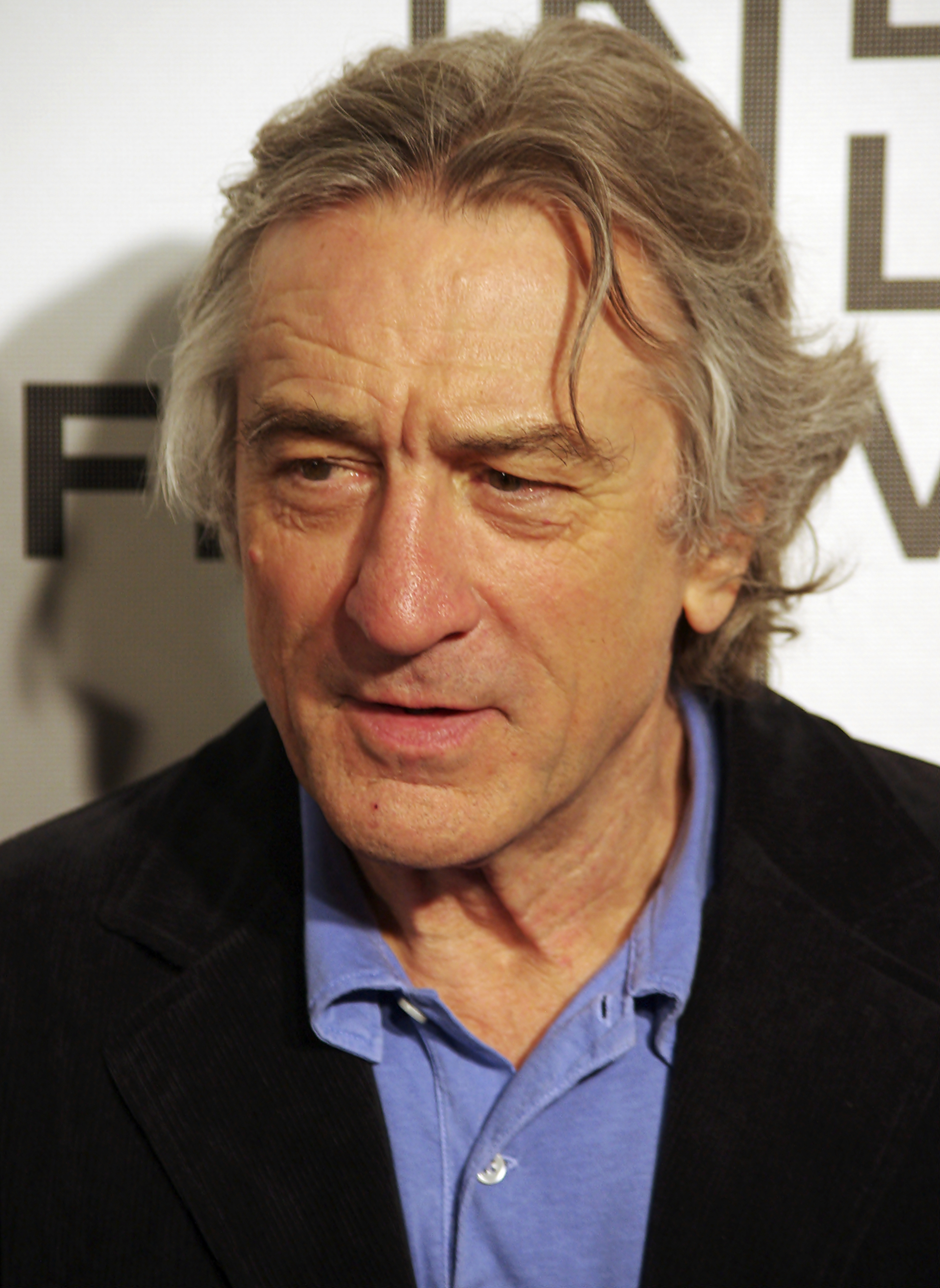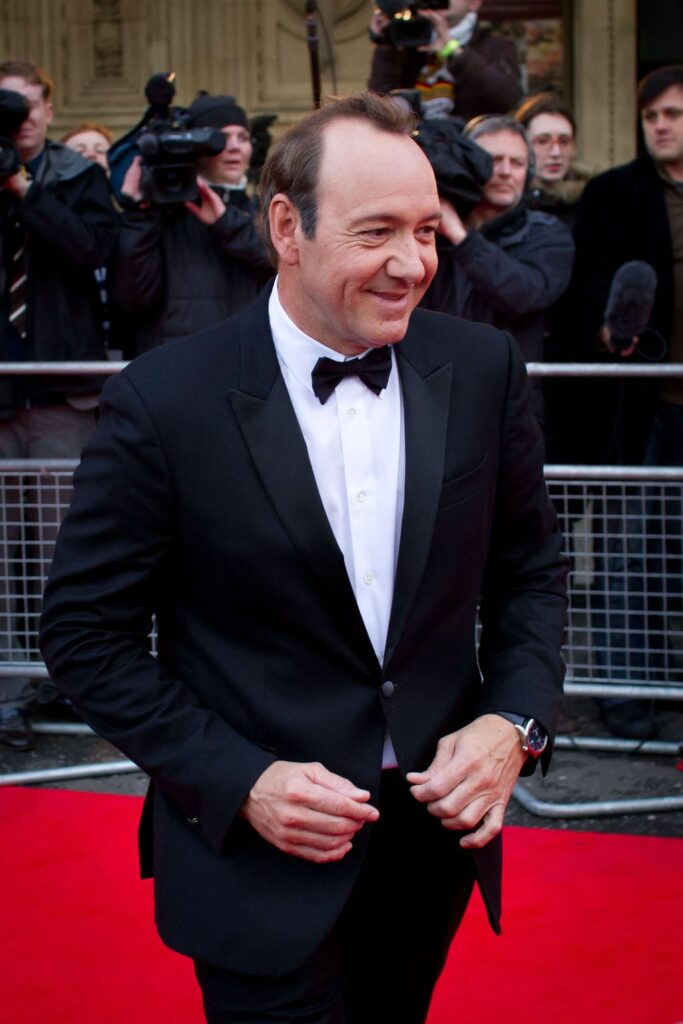
In the vast landscape of cinema, where leading stars often command the lion’s share of attention and marketing, there’s a unique magic that occurs when a supporting character unexpectedly outshines the protagonist. These are the performances that linger, the ones audiences talk about long after the credits roll, proving that screen time and top billing don’t always dictate who leaves the most indelible mark. It’s a testament to incredible acting, compelling character development, and sometimes, a script that simply gives too much brilliance to the “sidekick.”
These actors managed to steal the show with fewer lines, less screen time, and often a fraction of the paycheck, transforming their roles into the undeniable heart of the story. From iconic villains to quirky sidekicks and emotionally resonant figures, these performances bring charisma, depth, or sheer intensity, turning secondary roles into the true focal point. We’re about to delve into some of the most spectacular instances where the supporting cast completely blew the main character out of the water, captivating audiences and critics alike.
This phenomenon isn’t just limited to films with poorly written leads; it frequently happens even with popular and iconic characters at the helm. It’s about that extraordinary blend of talent and timing, where an actor seizes an opportunity and crafts something truly unforgettable. Join us as we celebrate these remarkable supporting actors who turned their roles into cinematic legend, enriching the films they were a part of and leaving an enduring impact on audiences everywhere.

1. **Jake Gyllenhaal in “Brokeback Mountain” (2005)**”Brokeback Mountain” is a poignant and powerful narrative that explores forbidden love and its enduring impact. While Heath Ledger’s performance as Ennis Del Mar was widely praised for its quiet intensity and deep emotional resonance, it’s often argued that Jake Gyllenhaal’s portrayal of Jack Twist was equally, if not more, compelling. Gyllenhaal brought a depth and vulnerability to Jack that resonated deeply with audiences, creating a character who actively sought a future with Ennis, contrasting with Ennis’s more reserved nature.
Jack Twist’s yearning for a life he couldn’t openly have, and his spirited yet ultimately tragic outlook, provided a crucial emotional counterpoint to Ennis. His hope, frustration, and unwavering love were palpable, making his character a vital anchor for the film’s emotional core. Gyllenhaal masterfully conveyed Jack’s complex internal struggles and external charm, illustrating the devastating toll of societal pressures on his life and relationship.
Many viewers felt that Gyllenhaal’s performance was the emotional anchor of the film, providing the proactive energy that drove much of the narrative’s romantic and tragic elements. His chemistry with Ledger was undeniable, but it was Jack’s specific arc—his attempts to forge a life with Ennis despite the overwhelming obstacles—that often left the most profound impression. This performance cemented Gyllenhaal’s status as a formidable dramatic actor, capable of profound emotional complexity.

2. **Steve Buscemi in “Fargo” (1996)**The Coen Brothers’ “Fargo” is a black comedy crime thriller renowned for its unique blend of dark humor, stark violence, and unforgettable characters. Frances McDormand’s lead performance as the pregnant police chief Marge Gunderson is iconic, rightfully earning her an Academy Award for Best Actress. However, amidst the frigid Minnesota landscape and a labyrinthine plot, Steve Buscemi’s portrayal of the chatty, weaselly criminal Carl Showalter absolutely stole the show for many viewers.
Buscemi’s Carl is a masterclass in portraying a character who is simultaneously pathetic, menacing, and darkly comedic. His constant complaining, his nervous energy, and his increasingly desperate actions provided a stark, often hilarious, contrast to Marge’s calm, pragmatic demeanor. Carl’s memorable dialogue, including his incessant griping about pancakes and his bizarre attempts at disposing of evidence, added a layer of dark humor that became a talking point for many viewers, making him an instantly recognizable and quotable character.
The sheer unhinged nature of Carl, coupled with Buscemi’s distinctive delivery, made him impossible to ignore. He was the chaotic force that drove much of the film’s escalating mayhem, and his presence on screen, however despicable his character’s actions, was undeniably captivating. Buscemi’s ability to infuse such a reprehensible character with moments of unsettling humor ensured that Carl Showalter remained vividly in the audience’s mind, a true standout in a film already rich with remarkable performances.

3. **Rosamund Pike in “Gone Girl” (2014)**David Fincher’s “Gone Girl” is a psychological thriller that twists and turns with chilling precision, captivating audiences with its dark exploration of marriage and identity. While Ben Affleck as the lead, Nick Dunne, garnered significant attention for his portrayal of a husband thrust into a media circus surrounding his wife’s disappearance, it was Rosamund Pike’s performance as Amy Dunne that was widely praised for its complexity and chilling manipulation, making her character far more memorable for many viewers.
Pike’s transformation into Amy, particularly her “Cool Girl” monologue and her meticulous planning of revenge, was nothing short of brilliant. She perfectly embodied the dual nature of Amy – the seemingly perfect, vulnerable wife and the calculating, vengeful mastermind. Her ability to convey such a profound shift in character, from victim to orchestrator, with terrifying conviction, left audiences utterly spellbound and genuinely unnerved. The layers of deception and the sheer audacity of Amy’s plan were delivered with an unsettling calm that was captivating.
Amy Dunne quickly became an iconic villainess in modern cinema, primarily due to Pike’s masterful performance. Her icy composure, her intellectual prowess used for sinister ends, and the sheer audacity of her scheme made her the true focal point of the film’s psychological depth. Pike’s portrayal earned her an Academy Award nomination, and for good reason; she crafted a character that transcended the typical thriller antagonist, leaving a lasting impression that eclipsed even the lead’s frantic search for answers.

4. **Philip Seymour Hoffman in “Almost Famous” (2000)**Cameron Crowe’s “Almost Famous” is a semi-autobiographical coming-of-age story set in the world of 1970s rock and roll, filled with strong, memorable performances from its ensemble cast. Patrick Fugit plays the young protagonist William Miller, navigating the chaotic and alluring world of rock journalism. Yet, in a film bursting with talent, Philip Seymour Hoffman’s role as the legendary music critic Lester Bangs stood out with an impact that often overshadowed the lead characters.
Hoffman, known for his incredible versatility, brought Lester Bangs to life with a gruff charm and an almost paternal wisdom. Despite his limited screen time, his scenes were incredibly impactful, delivering profound monologues about integrity, authenticity, and the true meaning of rock and roll. His advice to William – “Don’t take any of their s***. You know, you’re the one. Hold on to that” – became a mantra for aspiring journalists and artists, resonating deeply with viewers.
Lester Bangs, as portrayed by Hoffman, served as a crucial moral compass and a voice of cynical yet deeply caring realism amidst the glamour and excess of the music industry. Hoffman’s ability to convey such immense character and wisdom in brief, powerful bursts made every moment he was on screen count. His performance left a lasting impression, solidifying Lester Bangs as not just a character, but an enduring mentor figure whose wisdom transcended the film’s narrative.

5. **Sam Rockwell in “Moon” (2009)**Duncan Jones’s “Moon” is a minimalist science fiction film that masterfully explores themes of identity, loneliness, and corporate exploitation. While Kevin Spacey’s voice role as the AI GERTY was integral to the plot, providing comfort and eventual revelation, it was Sam Rockwell’s dual role performance as Sam Bell that was a tour de force, becoming the undisputed focal point of the film’s acclaim. His nuanced depth brought each iteration of the character to life with compelling individuality.
Rockwell carried the entire film on his shoulders, portraying a lone astronaut nearing the end of his three-year contract on the moon, only to discover a shocking truth about his existence. His performance required him to interact primarily with himself (or his clones) and an AI, demanding an extraordinary range of emotional vulnerability, paranoia, and existential dread. He had to convince the audience of the distinct personalities and evolving states of mind for each Sam, a challenge he met with remarkable success.
The film’s critical reception and enduring cult status are largely attributed to Rockwell’s singular performance. His ability to convey profound isolation, a desperate need for connection, and the chilling realization of his own disposability made for a truly immersive and heart-wrenching experience. Rockwell’s work in “Moon” is often cited as one of the finest examples of an actor commanding the screen entirely on their own, proving his exceptional talent and cementing his character as the film’s unforgettable core.
Read more about: 10 Powerful Movies Featuring Just One Actor: A Masterclass in Solo Acting

6. **Marisa Tomei in “My Cousin Vinny” (1992)**”My Cousin Vinny” is a beloved legal comedy that hinges on the fish-out-of-water antics of Joe Pesci’s street-smart, leather-jacket-wearing lawyer, Vinny Gambini, defending his wrongly accused relatives in rural Alabama. Pesci is fantastic in the lead role, but it’s Marisa Tomei’s performance as his fiery fiancée, Mona Lisa Vito, that is pure joy to watch and arguably steals every scene she’s in. Her portrayal secured her an Academy Award for Best Supporting Actress, and rightfully so.
Tomei’s Mona Lisa Vito is a character brimming with intelligence, wit, and an undeniable sassy charm. She’s not just Vinny’s arm candy; she’s his invaluable, mechanically gifted partner, whose sharp observations and profound knowledge of automobiles ultimately turn the tide in the courtroom. Amidst the courtroom drama and hilarity, she offers a performance that is sassy, intelligent, and completely magnetic, overshadowing even Pesci’s slick lawyer antics with her vibrant personality.
Her iconic testimony scene about the ’64 Skylark is a masterclass in comedic timing and character revelation. With her detailed, passionate, and impeccably accurate explanation of tire marks, she transforms what could have been a mere plot device into one of the most brilliant and memorable moments in comedy film history. Tomei’s performance elevated Mona Lisa Vito from a supporting role to a cinematic icon, proving her undeniable star power and captivating audiences with her sheer brilliance.

7. **Forest Whitaker in “The Last King of Scotland” (2006)**”The Last King of Scotland” is a historical drama that plunges viewers into the brutal and terrifying reign of Ugandan dictator Idi Amin through the eyes of James McAvoy’s fictional Scottish doctor, Nicholas Garrigan, who becomes Amin’s personal physician. While McAvoy delivers a solid performance as the naive and increasingly complicit doctor, the true star of this movie is unequivocally Forest Whitaker in his Oscar-winning role as Amin. His terrifying yet charismatic portrayal of the infamous dictator is one that will chill you to your bones and linger in your memory long after the credits roll.
Whitaker’s transformation into Idi Amin is nothing short of breathtaking. He embodies the dictator’s magnetic charm, unpredictable paranoia, and horrifying cruelty with such authenticity that it feels less like acting and more like channeling a historical figure. From Amin’s jovial initial interactions to his sudden, chilling outbursts of violence, Whitaker navigates the character’s complex psyche with an intensity that is both captivating and deeply unsettling. Every glance, every gesture, every word spoken carries immense weight.
The film serves as a vehicle for Whitaker’s powerhouse performance, showcasing his incredible range and dedication. His portrayal went beyond mere imitation; he delved into the psychological depths of a man capable of both inspiring fervent loyalty and committing unspeakable atrocities. No wonder Whitaker’s performance garnered him not only an Academy Award for Best Actor but also a BAFTA Award, solidifying his place as a master of his craft and ensuring that his depiction of Idi Amin remains one of the most compelling and terrifying villainous turns in cinematic history.
Now, let’s continue our deep dive into cinematic history, exploring eight more powerhouse performances where supporting actors seized the spotlight, captivating audiences, and carving out an undeniable legacy. These roles prove that sometimes, the magic truly lies in the unexpected corners of a film, where a character with fewer lines can leave the loudest impression. Prepare to revisit some truly iconic scene-stealers who elevated their films to new heights.

8. **Bobby Cannavale in “The Station Agent” (2003)**”The Station Agent” is an independent drama that thoughtfully explores themes of loneliness and unexpected friendship, with Peter Dinklage delivering a shining performance as the introverted Finbar McBride, who seeks solitude. Yet, it’s Bobby Cannavale’s portrayal of Joe, the relentlessly friendly and talkative food-truck owner, who consistently captivates the audience, breathing a vibrant energy into a film primarily centered on isolation. Joe’s character embodies a heartwarming contrast to Finbar’s reserved nature, demonstrating the profound impact of genuine human connection.
Cannavale masterfully infuses Joe with an infectious enthusiasm and a deeply genuine affection for Finbar. His character acts as a catalyst for much of the film’s emotional progression, consistently pushing Finbar out of his comfort zone in the most charming and non-threatening way possible. This dynamic provided some of the most touching and memorable moments in the movie, making Joe an indispensable part of its emotional landscape.
Joe’s unwavering optimism and his persistent, yet gentle, efforts to befriend Finbar resonate powerfully, illustrating the beauty of unlikely bonds. Cannavale’s performance ensures that Joe is not merely a cheerful accessory but a vital emotional anchor, whose warmth and sincerity elevate the film’s narrative and leave a lasting impression on viewers, making him an unforgettable “sidekick” who fundamentally shaped the story’s heart.

9. **Hank Azaria in “The Birdcage” (1996)**This American adaptation of the beloved French play “La Cage aux Folles” stars comedic giants Robin Williams and Nathan Lane as the leads, delivering strong, memorable performances. However, it’s Hank Azaria who, as the eccentric housekeeper Agador Spartacus, truly walks away with the show, delivering a performance that is nothing short of comedic genius. His ability to command attention and generate genuine laughs in every scene is a testament to his exceptional talent.
Agador Spartacus is a character brimming with an outrageous accent, flamboyantly expressive demeanor, and an unforgettable “Guatemalan palatial slave” outfit. Azaria’s distinctive portrayal creates a character that is instantly iconic and deeply endearing, making it impossible to overlook the sheer hilarity and heart he brings to the movie. He doesn’t just play a role; he embodies a comedic force that elevates the entire production.
Decades later, audiences still talk about Agador’s memorable lines and physical comedy, proving his enduring impact. Azaria’s unique blend of physical humor, vocal quirks, and sincere commitment to the character ensures that Agador Spartacus remains vividly in the audience’s mind, a true standout in a film already rich with remarkable comedic performances, often stealing scenes even from seasoned comedic legends.

10. **Albert Finney in “Before the Devil Knows You’re Dead” (2007)**Sidney Lumet’s underrated thriller “Before the Devil Knows You’re Dead” features stellar performances from Ethan Hawke and Philip Seymour Hoffman as brothers caught in a robbery gone terribly wrong. Amidst their complex and tragic narrative, the performance that truly stands out and resonates most deeply is Albert Finney’s portrayal of their devastated father. Finney brings a raw, visceral intensity to the role that anchors the film’s emotional core.
Finney’s portrayal of a man grappling with profound betrayal, overwhelming grief, and a burning desire for revenge is nothing short of phenomenal. His anguish feels incredibly real and raw, allowing audiences to feel every ounce of his character’s pain and disillusionment. The depth of emotion he conveys, often through subtle expressions and powerful silences, is a masterclass in dramatic acting, elevating the film’s tragic themes.
The emotional weight that Finney carries through the film culminates in his absolutely gut-wrenching final scene, which leaves an indelible mark on anyone who watches. Despite the movie’s impressive star-studded cast, it is Finney who truly provides the emotional depth to this tragic story. It’s a shame this powerful performance, and the film itself, were largely overlooked by both critics and audiences, as it remains a testament to his incredible dramatic prowess.

11. **Debra Winger in “Rachel Getting Married” (2008)**This intense family drama centers on Anne Hathaway’s Oscar-nominated performance as the troubled Kym, navigating her sister’s wedding while confronting her own demons. However, in every scene she appears, it’s Debra Winger, playing Kym’s aloof and complicated mother, Abby, who truly steals the show. Winger’s ability to imbue her character with such profound complexity and realism, despite often minimal screen time, is remarkable.
Winger’s Abby is detached yet entirely convincing, portraying a plethora of complex emotions with breathtaking subtlety. She deftly demonstrates the deep pain and resentment buried within a mother who has seemingly given up on her damaged daughter, making her presence resonate with unspoken history and unresolved conflict. Her performance highlights the silent struggles and fractured relationships that lie beneath the surface of the family’s celebrations.
Her poignant portrayal serves as a powerful reminder of why she was one of the biggest stars of the ’80s, showcasing her enduring talent for delivering deeply nuanced and emotionally charged performances. Winger’s ability to create such a compelling and fully realized character with limited exposition ensures that Abby’s presence is felt long after she leaves the screen, adding layers of emotional truth that enhance the entire narrative.

12. **Chloë Sevigny in “Boys Don’t Cry” (1999)**Hilary Swank’s Academy Award-winning performance as Brandon Teena in “Boys Don’t Cry” is undoubtedly a tour de force, a portrayal of immense courage and vulnerability. However, it’s crucial to appreciate Chloë Sevigny’s equally impactful performance as Lana Tisdel, Brandon’s girlfriend. Sevigny navigates the complexities of Lana’s character with a delicate and compelling balance of vulnerability and strength, providing a crucial emotional counterpart to Brandon’s journey.
Sevigny brings an emotional depth to the film that is both heartbreaking and inspiring. Her ability to convey a whirlwind of emotions—from love and confusion to loyalty and devastation—with just a glance or a subtle change in expression truly sets her apart in this film. She allows the audience to feel the profound impact of Brandon’s true identity and the tragic events that unfold, grounding the narrative in a palpable sense of human experience.
It is truly a shame that Sevigny’s Hollywood career didn’t continue on the upward trajectory her performance in “Boys Don’t Cry” promised, as it showcased her as a very capable and deeply empathetic actress. Her portrayal of Lana remains a powerful, poignant element of the film, etching itself into the audience’s memory as a testament to profound love and tragic circumstance, shining brightly alongside Swank’s lead.

13. **Holly Hunter in “Thirteen” (2003)**”Thirteen” is an intense and unflinching drama that meticulously explores the tumultuous world of teenage rebellion, featuring raw and powerful performances from its young leads, Evan Rachel Wood and Nikki Reed. Yet, it is Oscar nominee Holly Hunter, in her role as Wood’s distressed mother, who truly proves she deserved more of the spotlight. Hunter’s authentic and vulnerable portrayal grounds the film’s harrowing descent into difficult territory.
Hunter exquisitely portrays a single mother struggling desperately to understand and help her rapidly changing daughter. Her performance is brimming with a raw authenticity and deep vulnerability that makes it impossible not to be moved by her character’s plight. She captures the bewildering pain and helplessness of a parent watching their child spiral out of control, making her character’s journey incredibly relatable and poignant.
As the film descends into increasingly distressing territory, depicting the darker aspects of adolescent life, it is Hunter who steadfastly keeps us grounded and emotionally invested. Her performance serves as the film’s moral and emotional compass, ensuring that despite the challenging subject matter, the audience remains deeply connected to the human struggle at its core. Her powerful presence truly elevates the entire narrative, making her the unforgettable emotional center.

14. **Peter Fonda in “The Limey” (1999)**Terence Stamp delivers a brilliant and intense performance as the driven protagonist in Steven Soderbergh’s crime-revenge film, “The Limey.” However, it is the remarkable performance of Peter Fonda, as the villainous record producer Terry Valentine, that leaves an equally lasting and chilling impression. Fonda infuses his character with an eerie charm and manipulative charisma that makes Valentine one of the most memorable antagonists in recent cinema.
Fonda’s portrayal captures the essence of a man who is outwardly laid-back and superficially charming, yet harbors a deeply deceptive and sinister core. This casual demeanor stands in fascinating contrast to Stamp’s intense, singularly driven protagonist, creating a compelling dynamic that fuels much of the film’s tension. Valentine’s understated menace is far more unnerving than overt villainy, making his presence genuinely unsettling.
He delivers a performance that is as chilling as it is captivating, managing to be both repulsive and magnetic. Fonda’s ability to command attention with such a nuanced depiction of villainy ensures that Terry Valentine is not just a plot device but a fully realized, haunting presence. His quiet but powerful turn makes him an undeniable scene-stealer, proving the lasting power of a well-crafted antagonist.

15. **Vinnie Jones in “Lock, Stock and Two Smoking Barrels” (1998)**Guy Ritchie’s fast-paced crime comedy, “Lock, Stock and Two Smoking Barrels,” is an intricate ensemble piece where determining a single “true lead” is a challenge amidst the rapid-fire dialogue and convoluted plotting. Yet, among its vibrant cast of characters, Vinnie Jones, in his role as the formidable Big Chris, truly stands out and carves an unforgettable niche for himself. His unique presence immediately grabs the audience’s attention.
Jones’s deadpan delivery, combined with his intimidating physical presence, creates a character that is both genuinely menacing and surprisingly endearing. Big Chris is not just a gangster; he also exhibits an unexpected paternal streak, particularly towards his young son, Little Chris. This duality adds layers of complexity and dark humor to his character, making him far more than a one-dimensional thug.
This blend of intimidating authority and unexpected warmth creates a unique character that manages to outshine even the cleverest of Ritchie’s intricate plot twists and turns. As a former footballer with no previous acting experience, Jones more than holds his own among a cast of seasoned actors, cementing Big Chris as an iconic figure in British crime cinema and a testament to the power of authentic, impactful casting.
As we reflect on these unforgettable performances, it becomes abundantly clear that the heart of a film isn’t always found in its top-billed names. Sometimes, it’s the supporting players, with their charisma, depth, and sheer intensity, who seize the narrative, elevate the story, and leave the most enduring impression on our cinematic consciousness. These actors, through their remarkable talent, remind us that great performances can truly come from anywhere within a film’s ensemble, enriching the experience and ensuring these characters live on in our memories as true cinematic legends. They are the unsung heroes who transform secondary roles into the very soul of the story, proving that the spotlight can be stolen with brilliant acting, regardless of screen time or billing.



